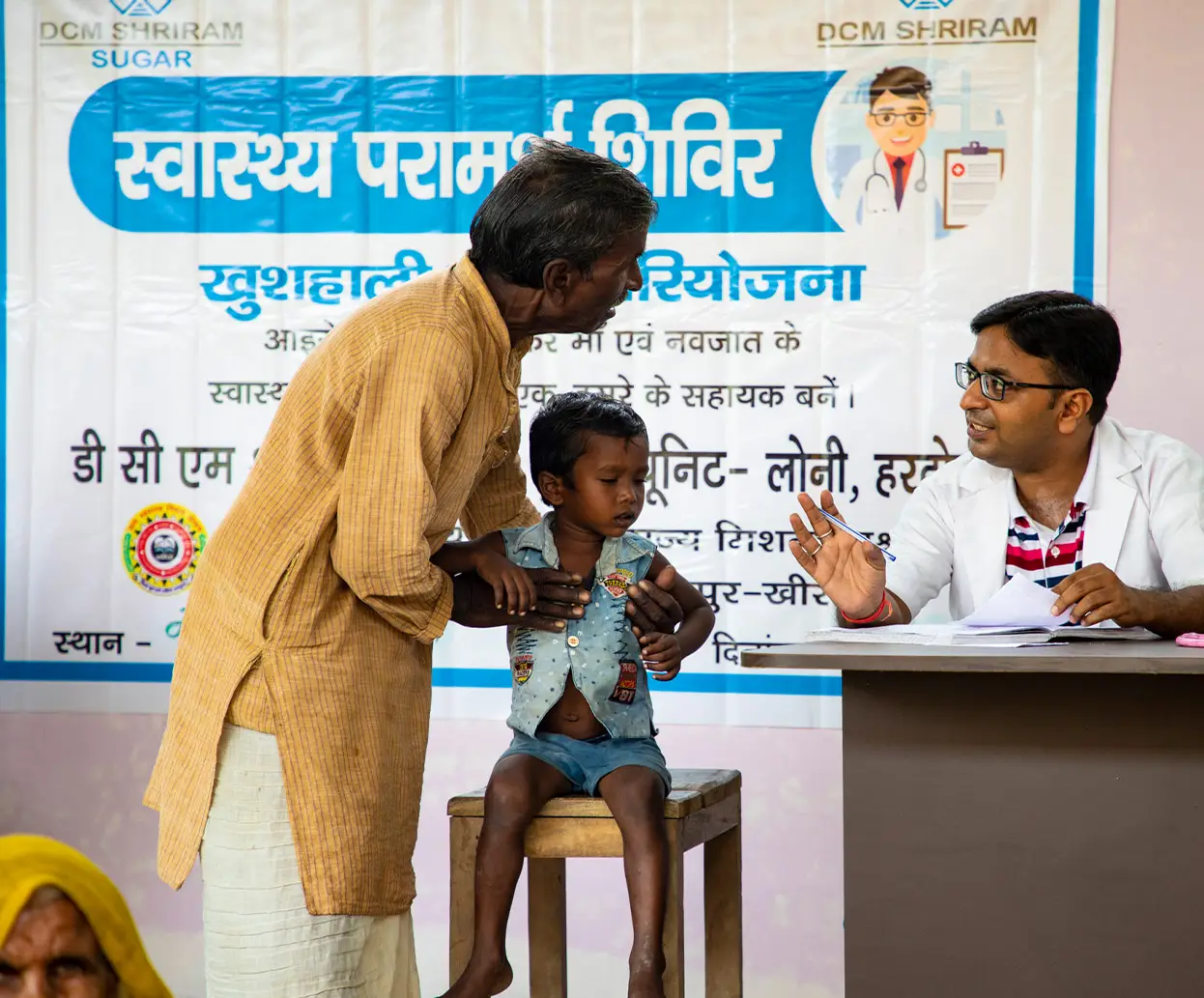
DCM Shriram Foundation has a holistic approach to healthcare. The ‘Mother & Child program’ has an overall objective to reduce the MMR and IMR in the adopted villages of UP, Gujarat and Rajasthan.
The Company has a cadre of Sehat Saathi’s - Village Level Workers (VLWs) who are deployed in the adopted villages. These VLWs work in collaboration with ASHAs and ANMs and mobilize pregnant women, lactating mothers and adolescents. The aim is to lower IMR and MMR through focus on immunization, combating malnutrition, menstrual health management and promoting institutional deliveries. Creating demand within the community for Govt. health services and strengthening the supply side of Govt. a health facility is the essence of the healthcare program.
For better community outreach, Mobile Medical Units (MMU) have been introduced across 45 Gram Panchayats covering Hariawan Block , 109 Gram Panchayats covering Pasgawan Block in UP and 122 Gram Panchayats covering Jhagadia Block in Gujarat. This MMU is equipped with all the latest medical facilities, it travels with a female gynaecologist, nurse, pharmacist, equipment for Ante/Post Natal check-ups and some tests which are being conducted for diagnosis of high risk pregnancies. The van is also equipped with audio-visual aids and short educational movies on healthcare which are aired while patients wait for their turn. With the provision of these vans, the rural women are now getting access to city-level health facilities.
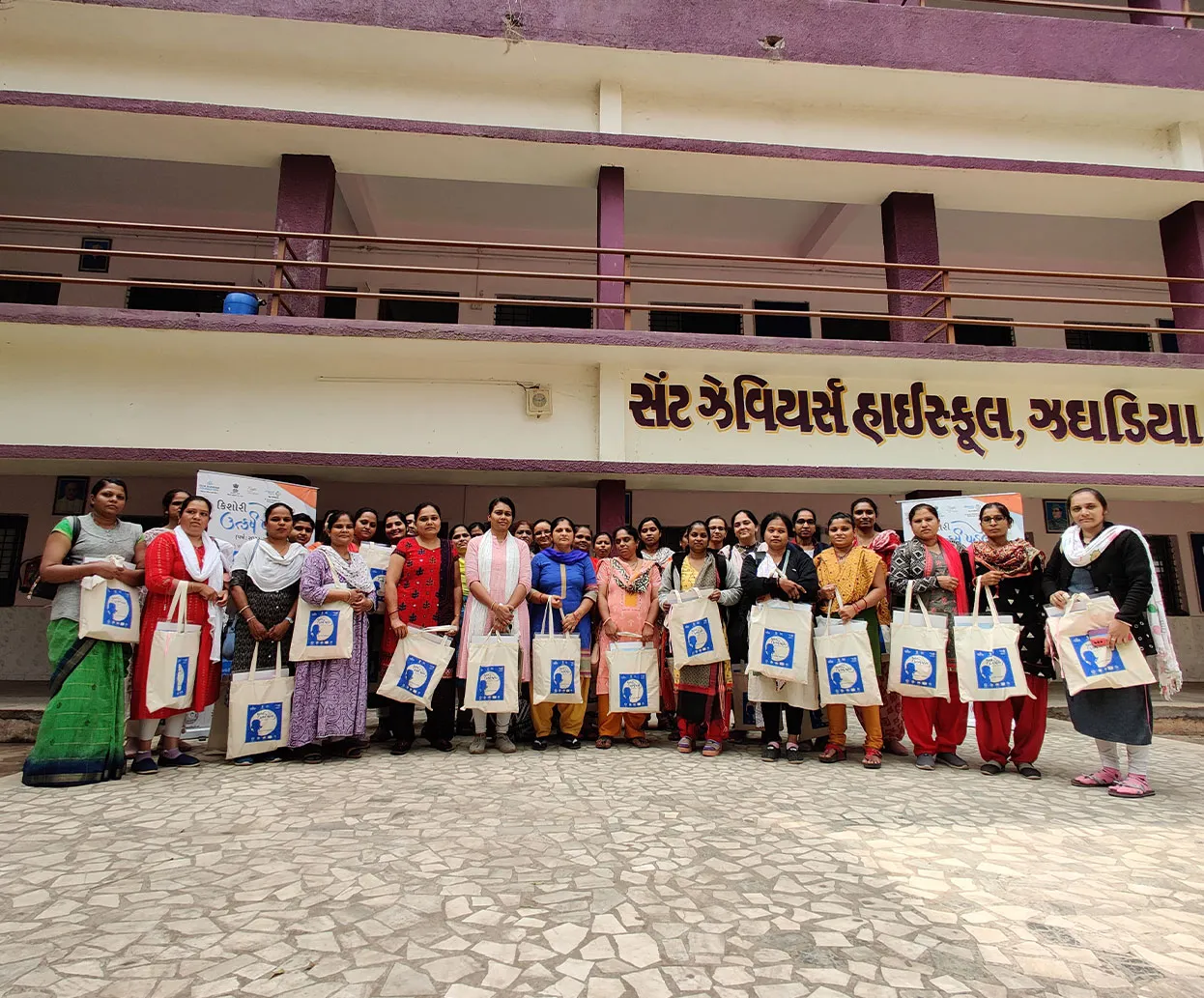
DCM Shriram Foundation collaborated with Bharuch District Administration to launch Kishori Utkarsh Pahel in Bharuch. It is a program with an aim to empower adolescent girls with an objective of bringing self-awareness pertaining to proper nutrition intake, health & hygiene, life skills, certain rights & entitlements and several Government schemes.
DCM Shriram Foundation being a strategic partner is implementing this program in partnership with CSRBox Foundation with UNICEF India and MS University being a knowledge partner. On-ground Delivery and Local Ecosystem Partners include the Department of Women and Child Development and Education Department. The program objective is to cover adolescent girls in the age group of 10 to 19 years from 123 villages of Jhagadia Taluka, Bharuch. During the year, these girls have undergone various capability and capacity building sessions on health & hygiene, child marriage, nutrition, career counseling and will further be assessed and go for exposure visits to Government institutions and become ‘Adarsh Kishoris’.

Facilitation of relevant tests for Pregnant and Lactating mothers (Oximeter test being conducted)

Free Ante-Natal check-up being conducted at the MMU to identify high risk pregnancies

Mobile Medical Units equipped with qualified medical staff – Medical Officer and Nurse
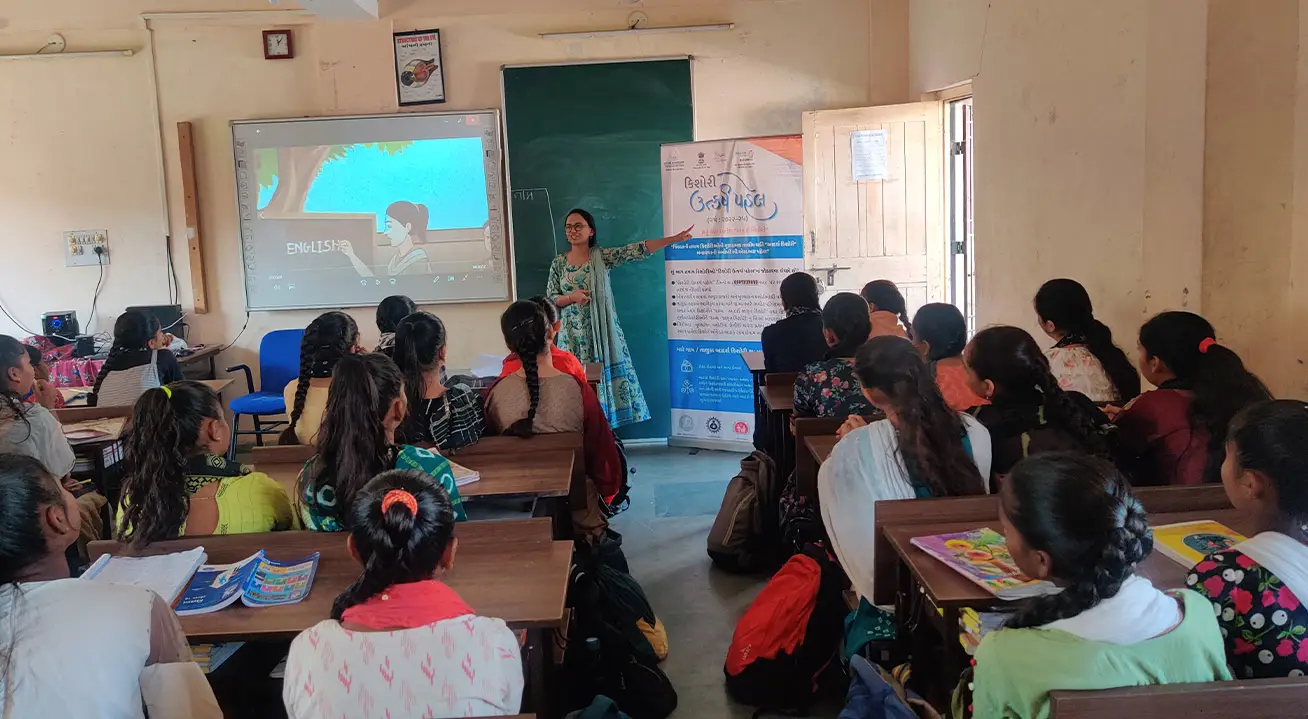
Awareness session conducted for young adolescent girls under Kishori Utkarsh Pahel
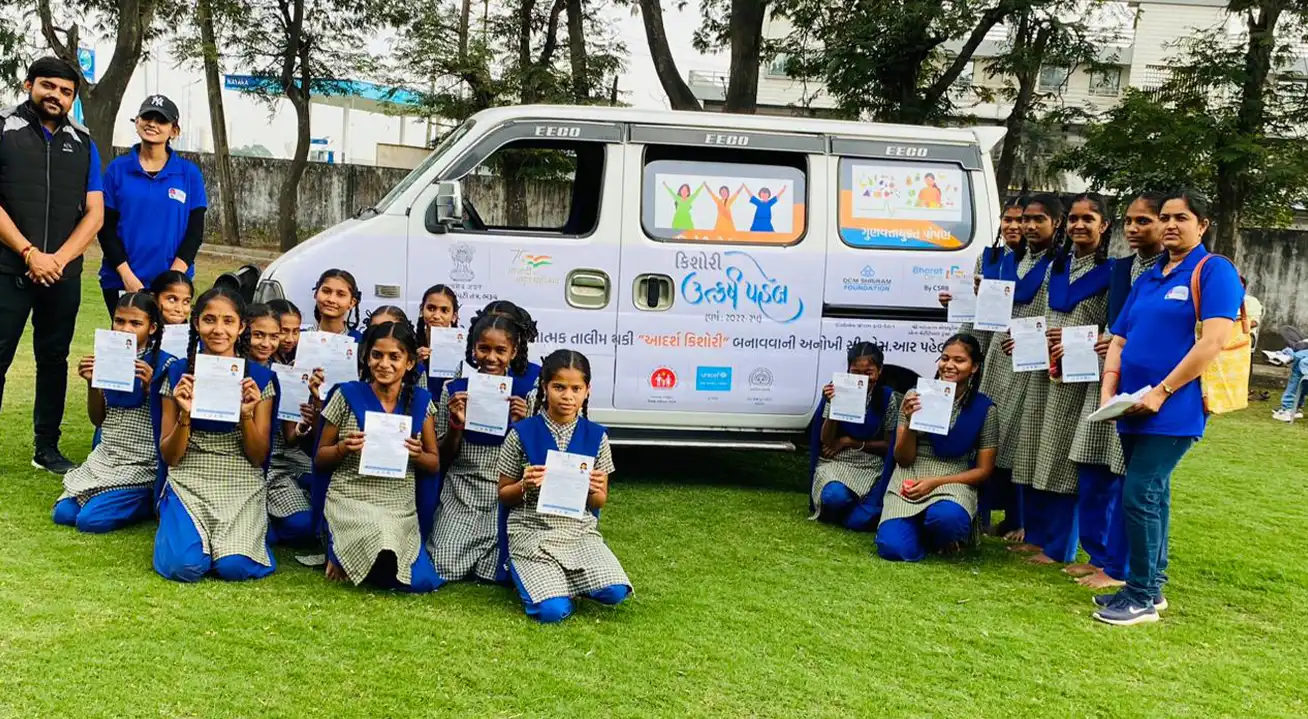
Kishori Utkarsh Pahel’s outreach van travels across 122 villages of Jhagadia Block to spread awareness about the Program catered towards adolescent girls
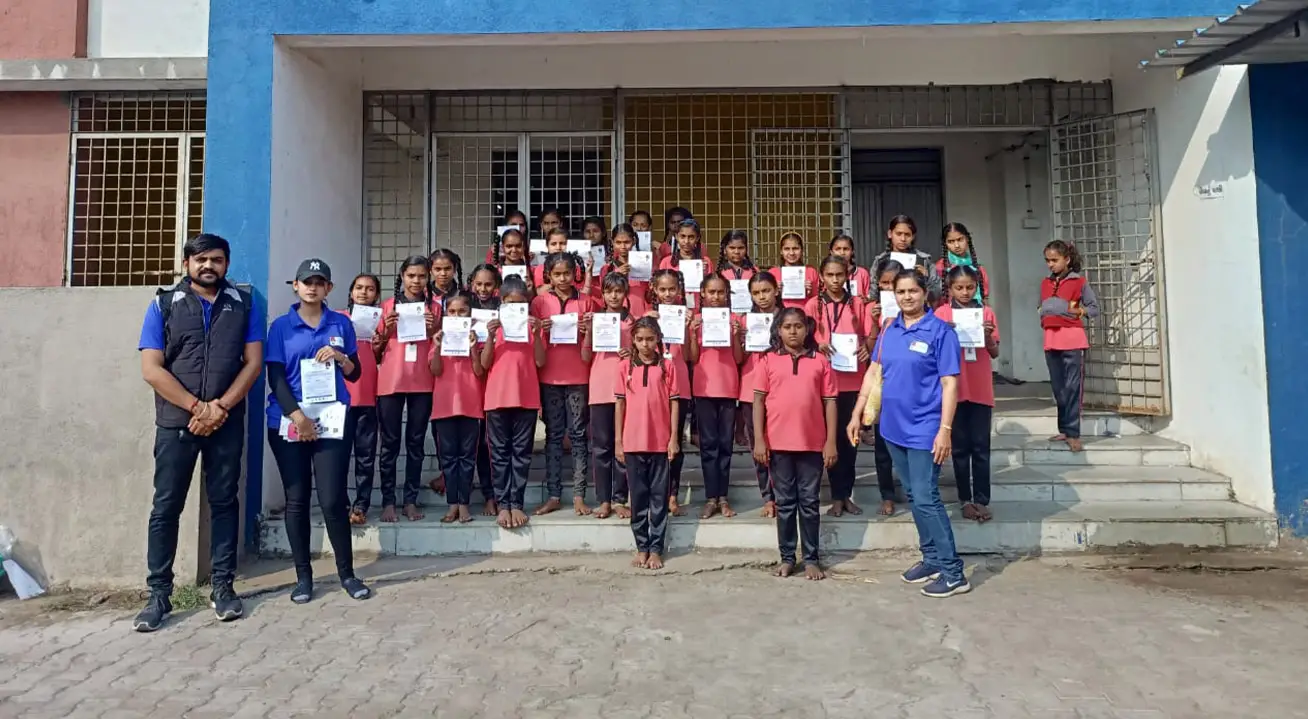
Adolescent girls empowered under Kishori Utkarsh Pahel through awareness sessions on their Rights and Entitlements